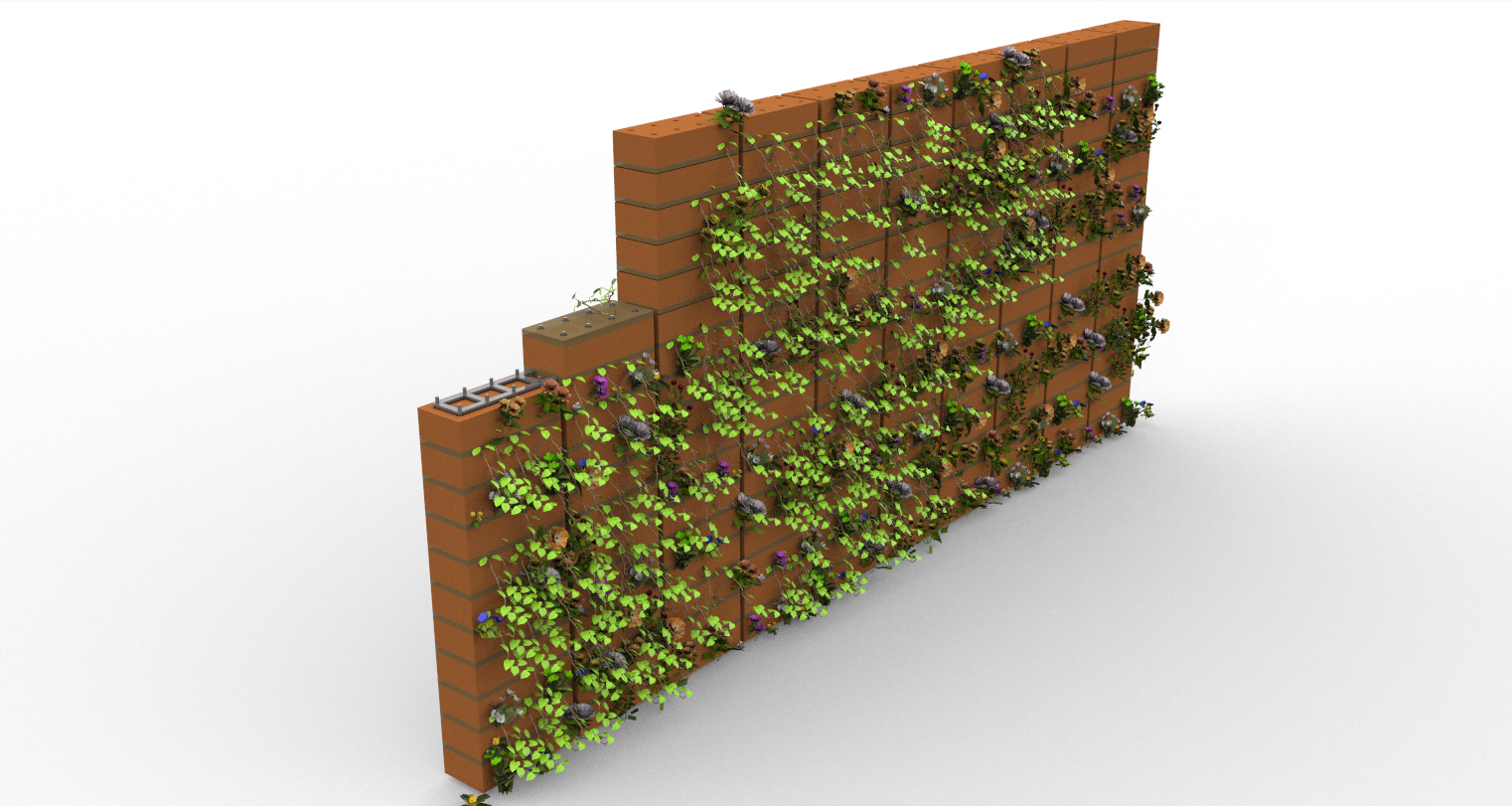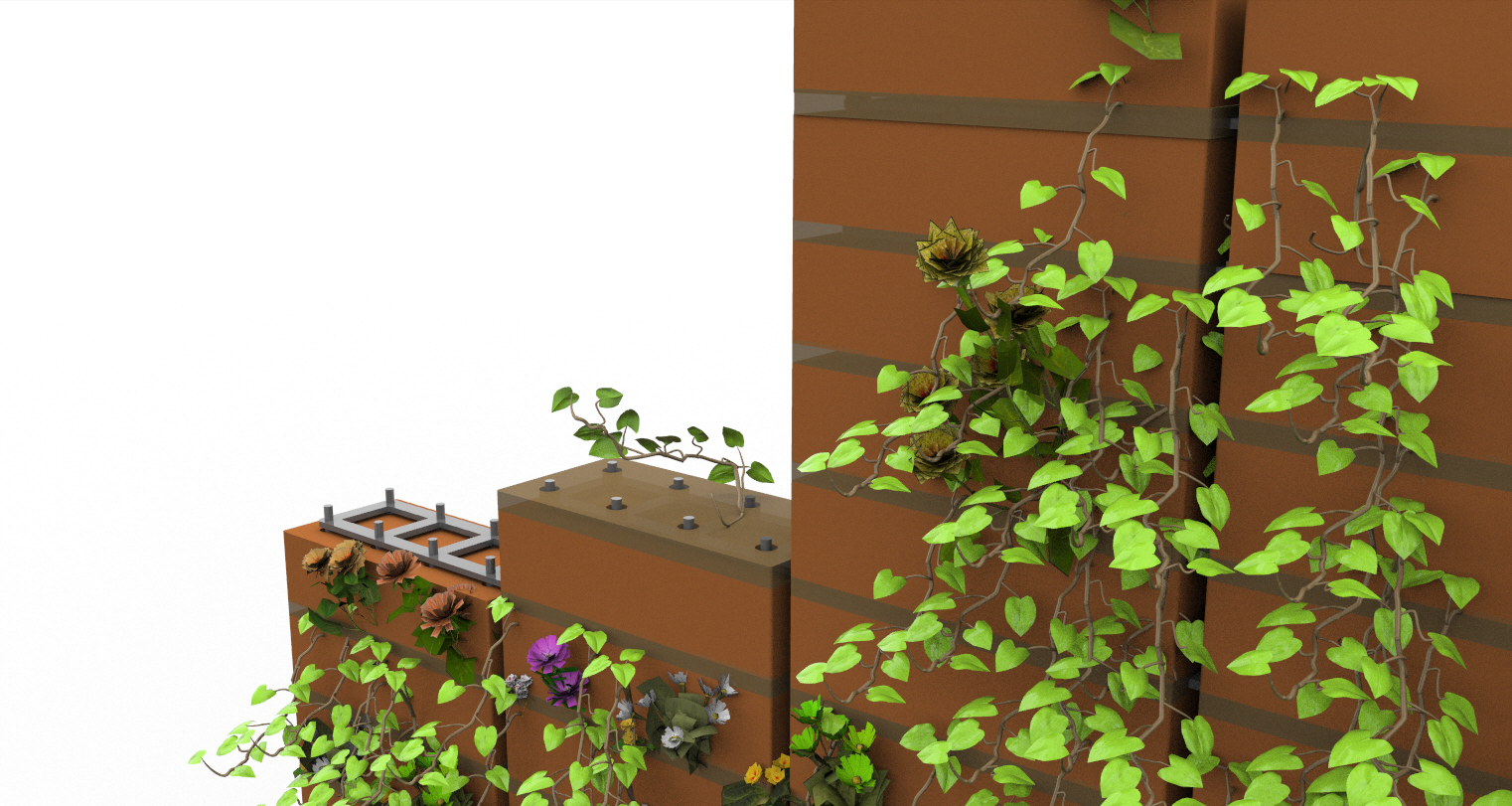Wall Garden
In recent years there has been an increasing need for nature inclusive solutions in the construction sector. The practice asks for new solutions contributing to the development of sustainable, resilient and liveable cities. Under the guidance of the Dutch government, greening of the cities has become one of the aims of municipalities in the Netherlands and the focus of some emerging companies and design offices.
In cities, quay masonry walls, thanks to their close contact with water, have the potential to be ecologically engineered to favour vegetation, thereby contributing to the renaturing of urban areas.
By building a prototype of an innovative masonry dry-stack building system, this project aims to investigate the potential for improving the integration between masonry quay walls and vegetation.
Instead of using mortar to connect bricks, a dry-stack system uses polyamide elements as an interconnecting element. The space in between bricks, traditionally filled with mortar, is to be filled with compost material, providing an ideal substrate for plant growth and a buffer for water storage. The connection of the dry-stacking system is purely mechanic, which allows for easy build up, demounting and reuse of both polyamide elements and brick units; this contributes to circularity and sustainability of the construction sector.
Facts
| Funder: | NWO /Regieorgaan SIA |
| Programme: | KIEM2020 |
| Role TU Delft: | Lead partner |
| Project duration: | April 2021 – April 2022 |
| TU Delft researchers: |
Project partners
Consortium partners: Drystack BV, Kekkilä-BVB Research Center BV
Other participants: Municipality of Breda, Municipality of Amsterdam, Floron


